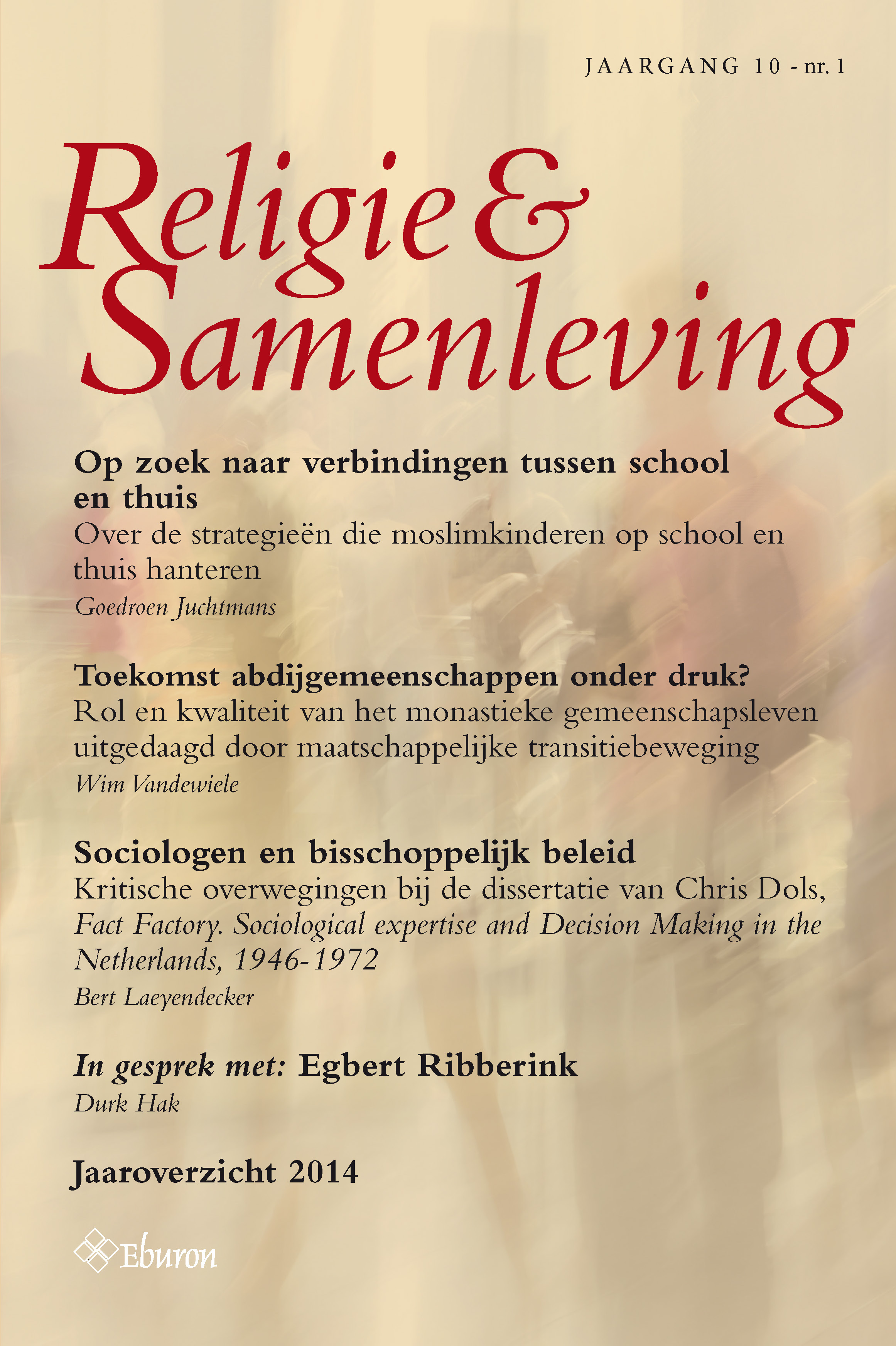Sociologen en bisschoppelijk beleid
Kritische overwegingen bij de dissertatie van Chris Dols, Fact Factory. Sociological Expertise and Episcopal Decision Making in the Netherlands, 1946-1972
DOI:
https://doi.org/10.54195/RS.12263Samenvatting
This dissertation focuses on the role of sociologists in the decision making by the Dutch bishops between 1946 and 1972. During these years sociologists, Zeegers and Goddijn in particular, with their catholic sociological research institute (KASKI), should have convinced the bishops of the indispensability of sociology for the process of church renewal. The author claims that they used statistics and narratives about the deteriorating situation of the church, presenting themselves as doctors, in order to steer the bishops in the direction of church renewal as defined by the sociologists. They even went so far as to “construct” a vocation- and celibacy-crisis. Their influence is alleged to have led to an “increasing domination of sociology” in the decision making and a “sociologisation in the Dutch Church Province”. My critique of this astonishing and aggressively styled story points especially to the neglect of a longstanding awareness of crisis and to misunderstandings of statistics and role and function of sociology.




